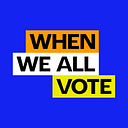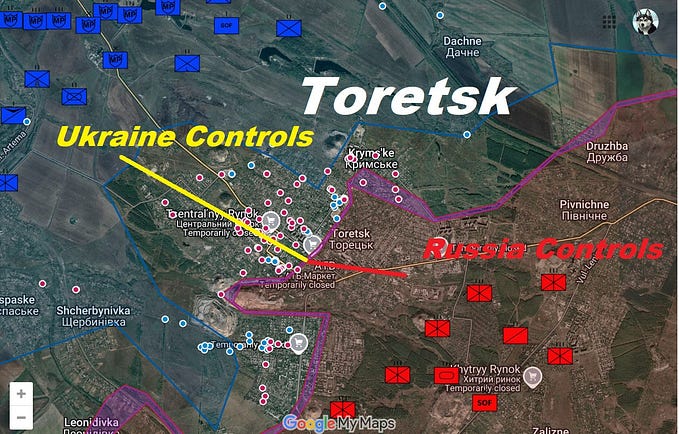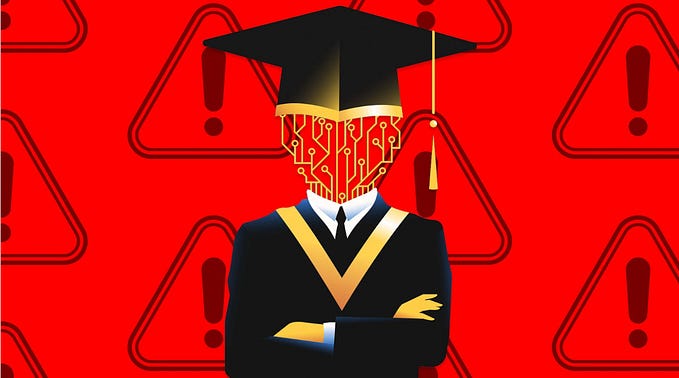
📣 Women in Action: Meet Shakya Cherry-Donaldson

This Women’s History Month, When We All Vote interviewed Shakya Cherry-Donaldson, founder and executive director of 1K Women Strong, an organization dedicated to empowering Black women across the country and mobilizing them for action. 1000 Women Strong stands at the intersection of politics and communal care, amplifying Black women’s voices and driving meaningful change.
Why is it important for women to exercise their right to vote?
Given that over 50% of the American electorate comprises women, we represent the most influential voting block in the country. Historically, there has been a patriarchy that denied women bodily autonomy, financial independence, and educational and career opportunities. Even today, we are still grappling with the effects of this legacy just a few generations later.
As a Black woman, I speak from the perspective of someone whose ancestors endured the American shadow of slavery. One of the most essential ways of making your voice heard in a democratic republic is through voting. It’s a baseline necessity for women to assert their full rights and participate in shaping the future of this nation.
What motivated you to launch 1K Women Strong? What do you see your role as in this election?
1K Women Strong resulted from merging different organizing groups and community issue campaigns. The goal was to engage Black women in meaningful action and change, leading to significant voter outreach and impact on student loan debt reduction.
It evolved from over a decade of grassroots organizing, with a pivotal moment in 2020 during the George Floyd protests coinciding with the presidential election. At that moment, I saw Black women pulling double duty, from planning morning protests to voter registration in the afternoon to late-night Zoom debriefings. I was frustrated because where was our hub? This highlighted the need for centralized support, recognition, and amplification of the work on the ground.
Now, we’re operating in seven states, with substantial voter contact and organizing records among Black women.

How can we ensure that voting rights are inclusive and representative of all women from all backgrounds?
It is important to engage ALL women from diverse backgrounds in discussions about voting rights, voter education, and civic education in our country. More movements, organizations, educational institutions, and advocacy groups must prioritize educating our communities.
We cannot expect people to fully engage in our electoral system if we do not address our country’s significant lack of civic education. It’s about more than just being uninformed or having low engagement. It’s about the overwhelming amount of information people are bombarded with — often mixed with misinformation.
Instead of constantly demanding action or reactions, we must commit to learning together and empowering each other with accurate information and understanding.
Let’s train ourselves and our community to engage in lowercase ‘d’ democracy, focusing on issues rather than partisan politics.
What advice would you give young women considering voting for the first time?
If you’re a young woman considering voting for the first time, I have two pieces of advice: one practical and one aspirational.
Young women should thoroughly research every candidate on their local ballot. This year, it’s especially essential to understand who is running from top to bottom. It may seem like a lot of work, but consistent engagement with our democratic process is important. By taking this step, we’re not just participating every four years but actively promoting democracy year-round. Let’s train ourselves and our community to engage in lowercase ‘d’ democracy, focusing on issues rather than partisan politics.
For those in states like Georgia facing potential voting difficulties, my advice is simple: pack water, snacks, and battery packs. You might be waiting in line for a while, so come prepared. And once you’re there, don’t leave. Your right to vote is non-negotiable, and you may encounter obstacles or attempts to dissuade you. Stay firm and resolute. Remember, this responsibility ultimately falls on us, so be prepared, stay engaged, and stand your ground.

Looking ahead, what role do you see women playing in shaping the future of our democracy through their voting power?
I strongly believe that women will become more educated and engaged in civic matters, and they will play an even more significant role in shaping policy and pushing back against harmful legislation, particularly at the state level. I’ve been seeing the impressive ways in which women in state legislatures have been actively opposing problematic bills, addressing issues ranging from book bans to restrictive language policies in schools to threats against abortion and healthcare access. It’s important to pay attention to these efforts because they have the potential to impact our rights and freedoms.
I anticipate a surge of women running for local offices after this cycle, from positions like water commissioners to school boards and tax commissioners. These may seem like mundane roles, but they wield significant influence over issues such as property taxes, water quality, and household finances — issues that disproportionately affect women-led households, especially in the Black community. If no one else will adequately address these concerns, then it’s up to us to step up and take action.
One of the most essential ways of making your voice heard in a democratic republic is through voting.
Any last words?
During Women’s History Month, we have a chance to celebrate the achievements of women in the past and present while also looking forward to the future. Despite the strength of resistance, I urge us to envision a world where we’re not just repairing what’s broken but building something new. Let’s collectively explore the possibilities of living our fullest potential and let that guide our path forward.
There are no off years in democracy, so join us as we stand up for voting rights. You can get started today by registering to vote (weall.vote/register), texting three friends (weall.vote/check), or by taking action (weall.vote/take-action).








